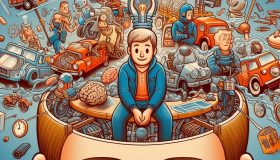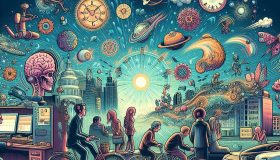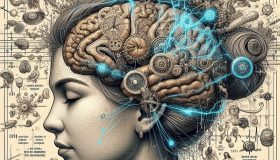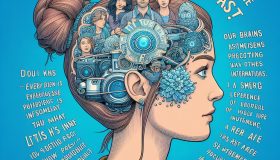Did you know that every moment you experience is slightly in the past?
It may sound surprising, but it’s true! Our brains are remarkable organs that continuously process vast amounts of information, but there’s a slight delay in how we perceive the world around us.
The phenomenon of living a little bit in the past is rooted in the intricate workings of the human brain. Despite our perception of events happening instantaneously, the reality is that it takes time for sensory information to travel from our sensory organs to the brain for processing. This process happens remarkably quickly, but there’s still a measurable delay.
Research has shown that it takes approximately 80 milliseconds for sensory information to reach the brain and for us to become consciously aware of it. This may seem like a minuscule amount of time, but it’s enough to create a noticeable lag between the actual occurrence of an event and our perception of it.
One fascinating aspect of this phenomenon is that our brains are constantly working to reconcile this delay, allowing us to perceive the world as seamless and continuous. Despite living slightly in the past, our brains are adept at filling in the gaps and creating a cohesive representation of reality.
This concept has profound implications for our understanding of human perception and cognition. It highlights the remarkable efficiency of the human brain in processing information and adapting to the constraints of time.
From a practical standpoint, this understanding of information processing in the brain can shed light on various aspects of human behavior and decision-making. It underscores the importance of factors such as reaction time, attentional processes, and the role of memory in shaping our perception of the world.
In conclusion, while it may seem like we experience the world in real-time, the reality is that we’re all living a little bit in the past due to the inherent delay in information processing in the brain. This fascinating aspect of human cognition offers valuable insights into the inner workings of the mind and our perception of reality.




